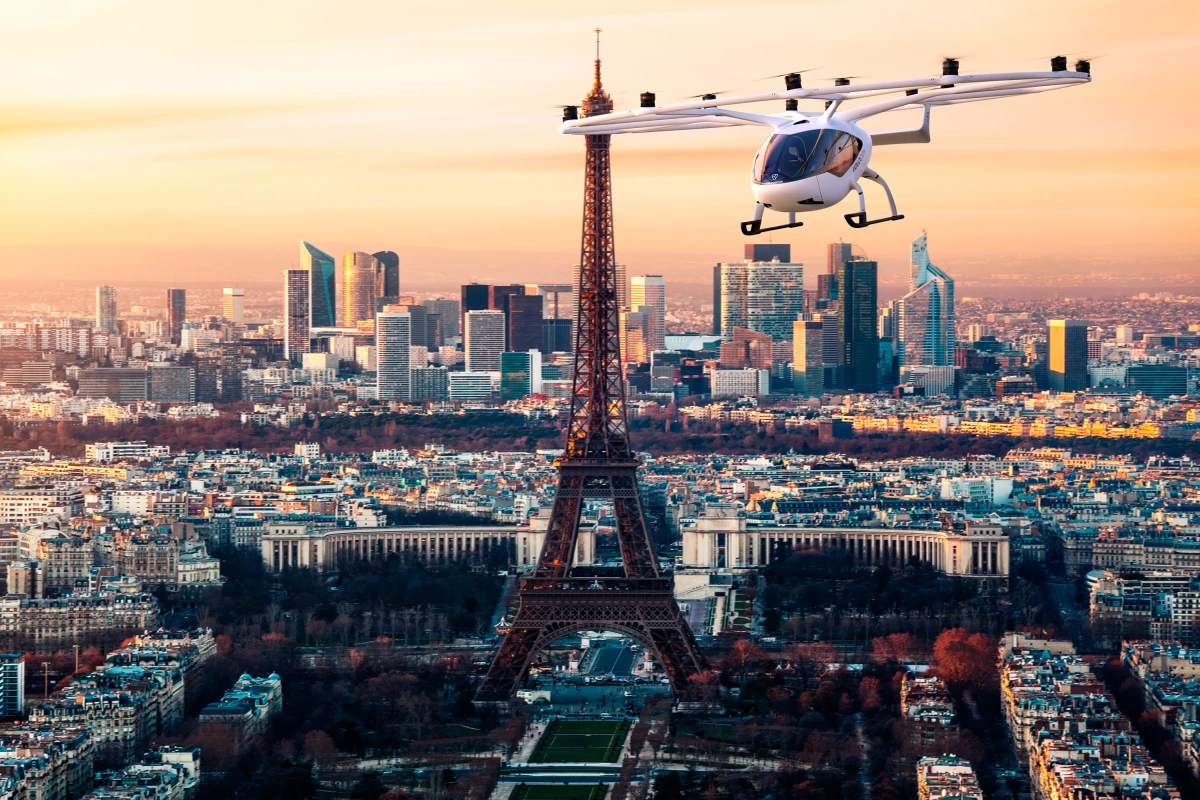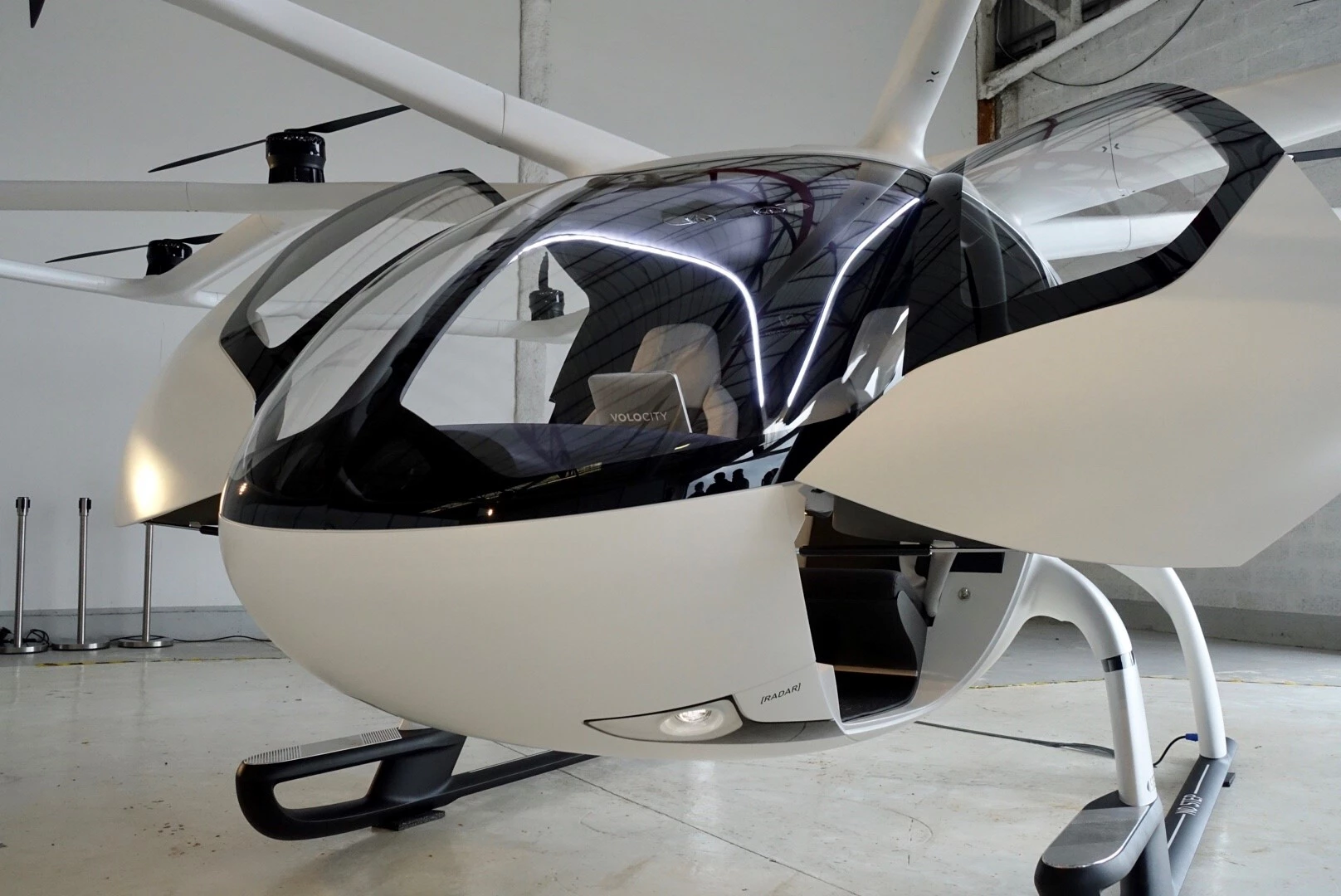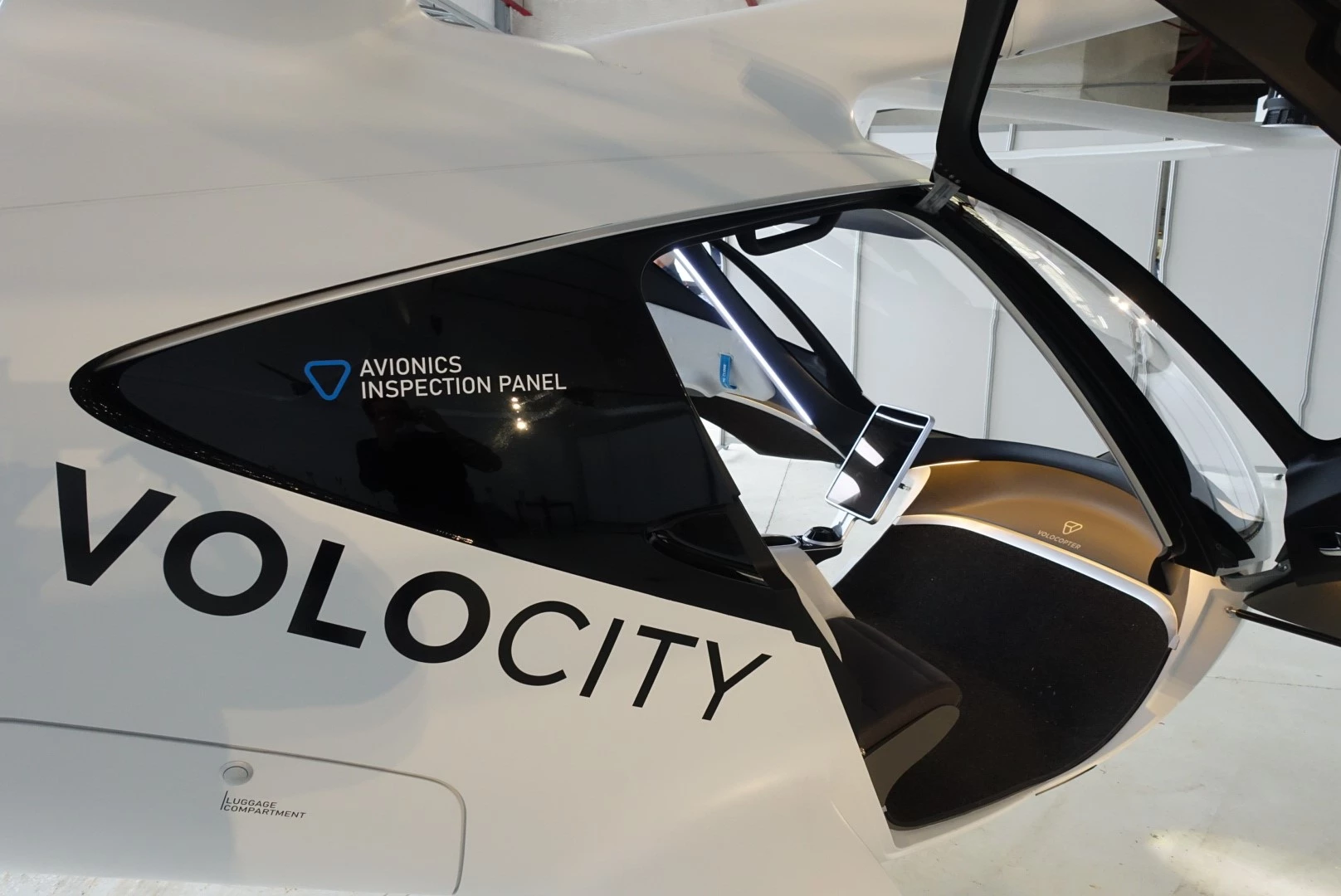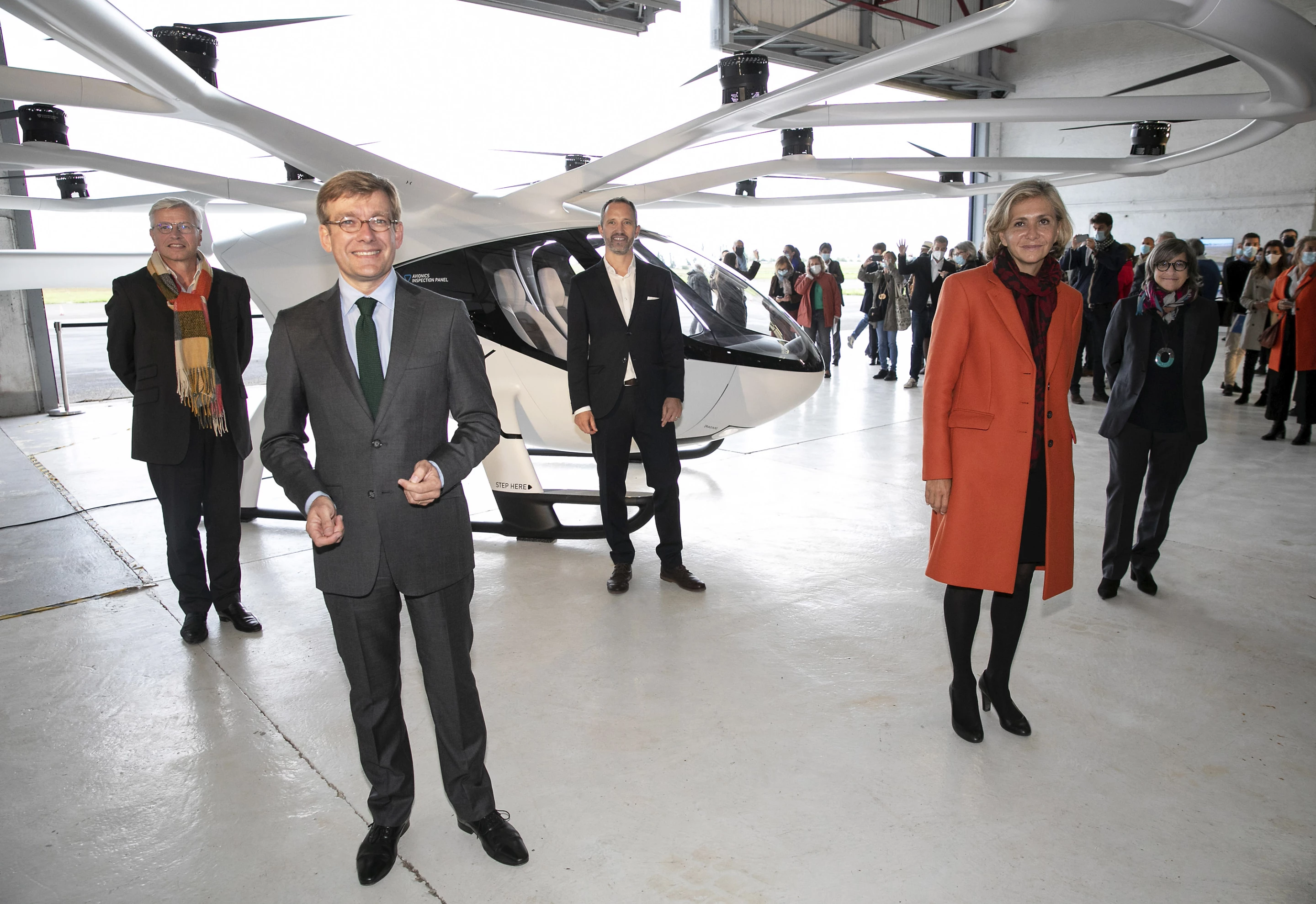Innovation hub Paris Region, airport operator ADP and urban transport operator RATP are eyeing the development of an urban air mobility branch ahead of the 2024 Olympic and Paralympic Games in Paris, and have joined forces with German air taxi startup Volocopter to make it happen.
That branch will start with a new air mobility test area at the Pontoise airfield near Cormeilles-en-Vexin to the northwest of Paris, with work starting in the first half of next year.
As a first step in the setup process, the collaboration has put out a call for expressions of interest from international manufacturers and equipment suppliers, energy companies and vertiport designers, operations support firms, research institutes and laboratories, and specialists in unmanned air traffic management or digital platforms. Selected projects will be announced on December 18.
The first industrial partner for the project has already been announced though. Volocopter, which has been flying since 2011 and has already notched up successful test flights in Singapore, Helsinki and Dubai, will test its VoloCity all-electric flyer at the new facility.
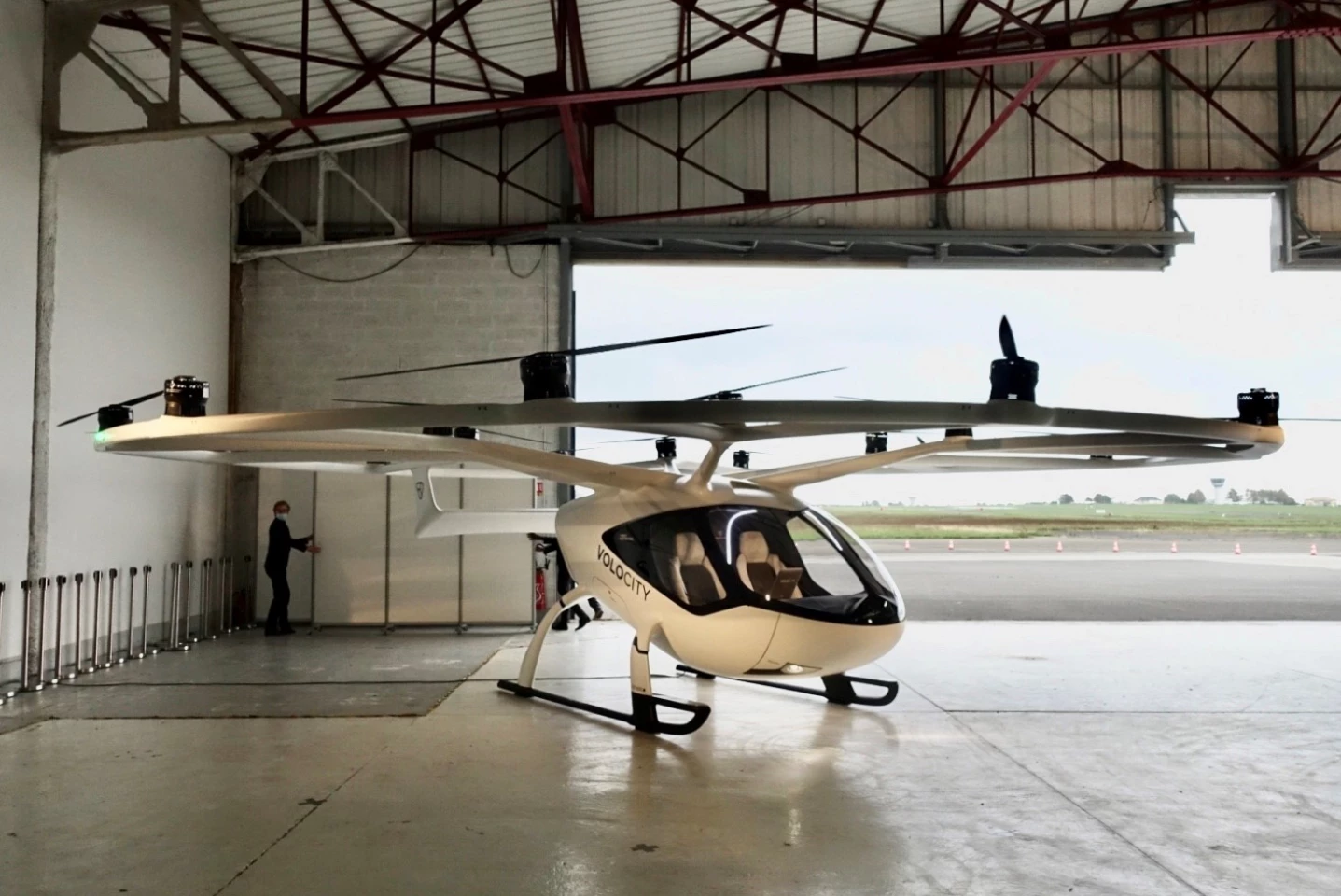
This eVTOL is already licensed for commercial operations by the European Aviation Safety Agency, has a per charge range of 35 km (22 mi) from its nine swappable Li-ion battery packs, and can get up to a top speed of 110 km/h (68 mph).
It stands 2.5 m (8.2 ft) high, with a 9.3-m (30.5-ft) diameter rotor rim up top that's home to 18 rotors. Multiple redundancy systems, including rotors, motors, batteries and avionics, ensure safe operation.
"We are incredibly excited to be the eVTOL manufacturer of choice in the Paris region’s Urban Air Mobility project," said Volocopter's CEO, Florian Reuter. "We will open our first commercial air taxi routes in the next 2-3 years and are excited to have a potential launching partner here in Europe."
By June 2021, the project will look to real-world testing of parking, takeoff and landing operations, as well as eVTOL support such as maintenance or battery charging. It is eventually hoped to have some sort of service in operation in time for the 2024 Olympics in Paris, to complement existing passenger or cargo transport solutions.
Source: Volocopter
